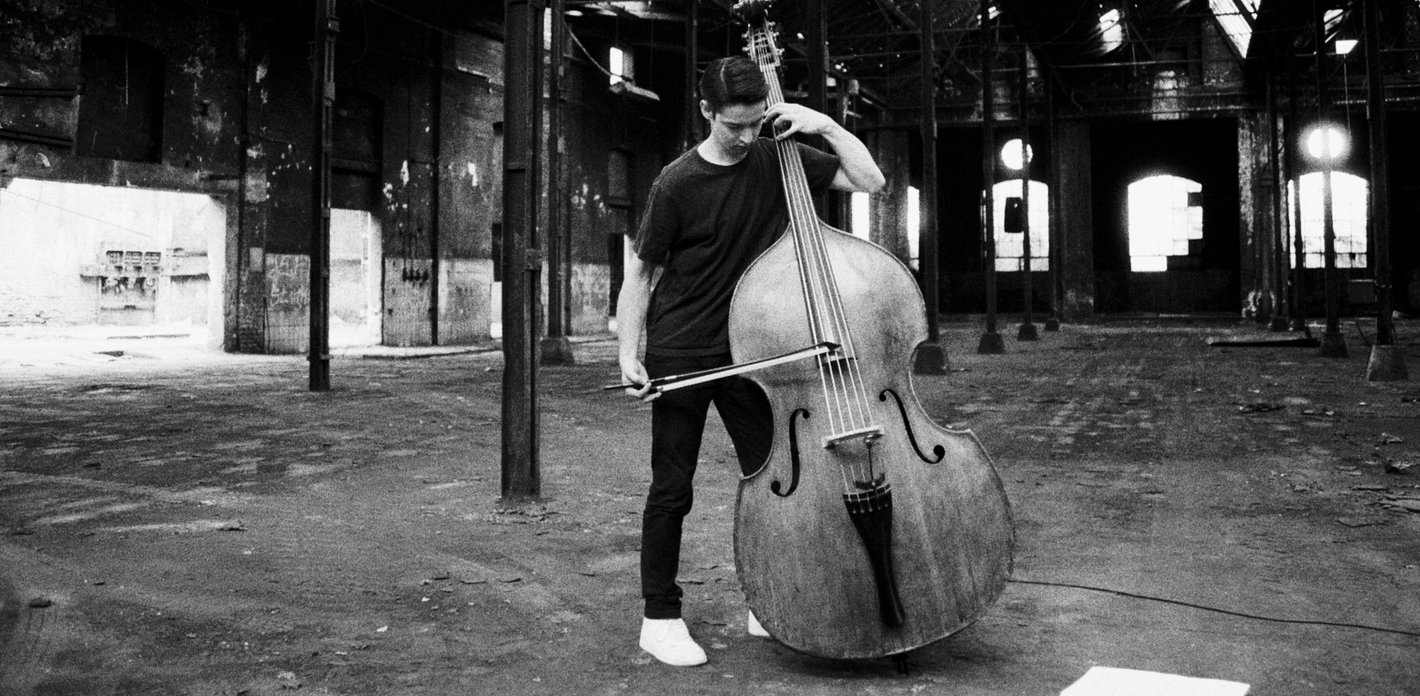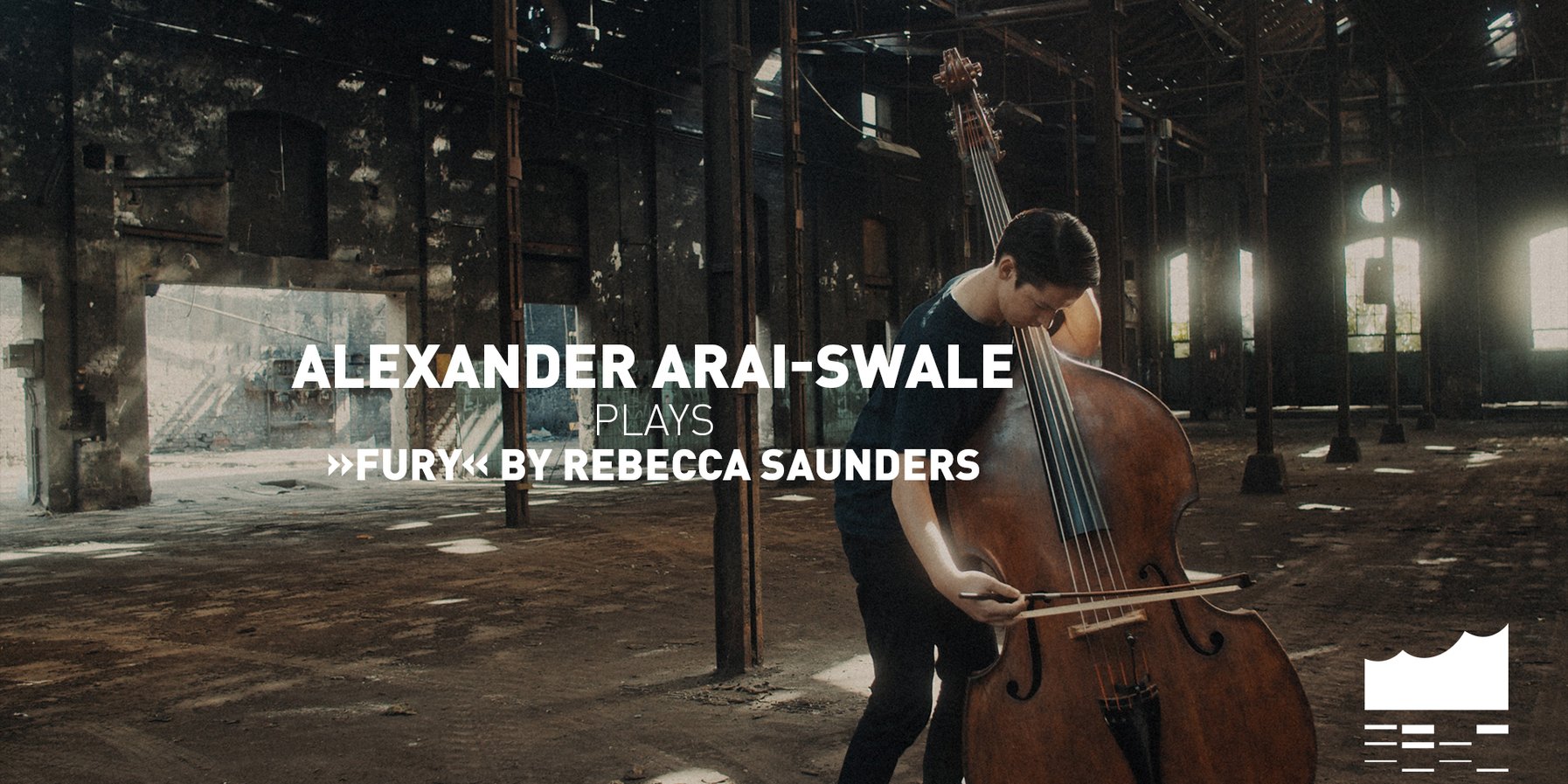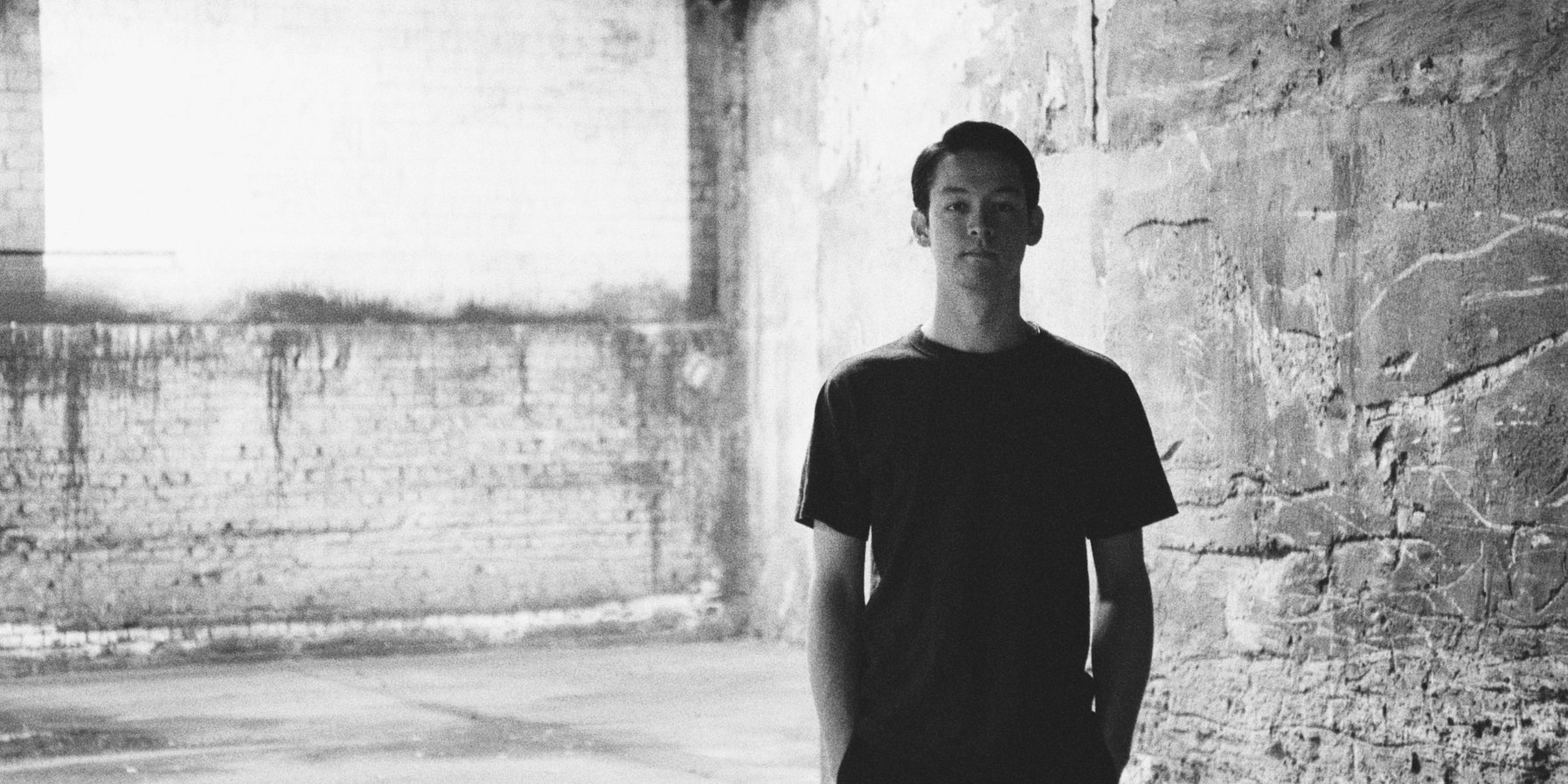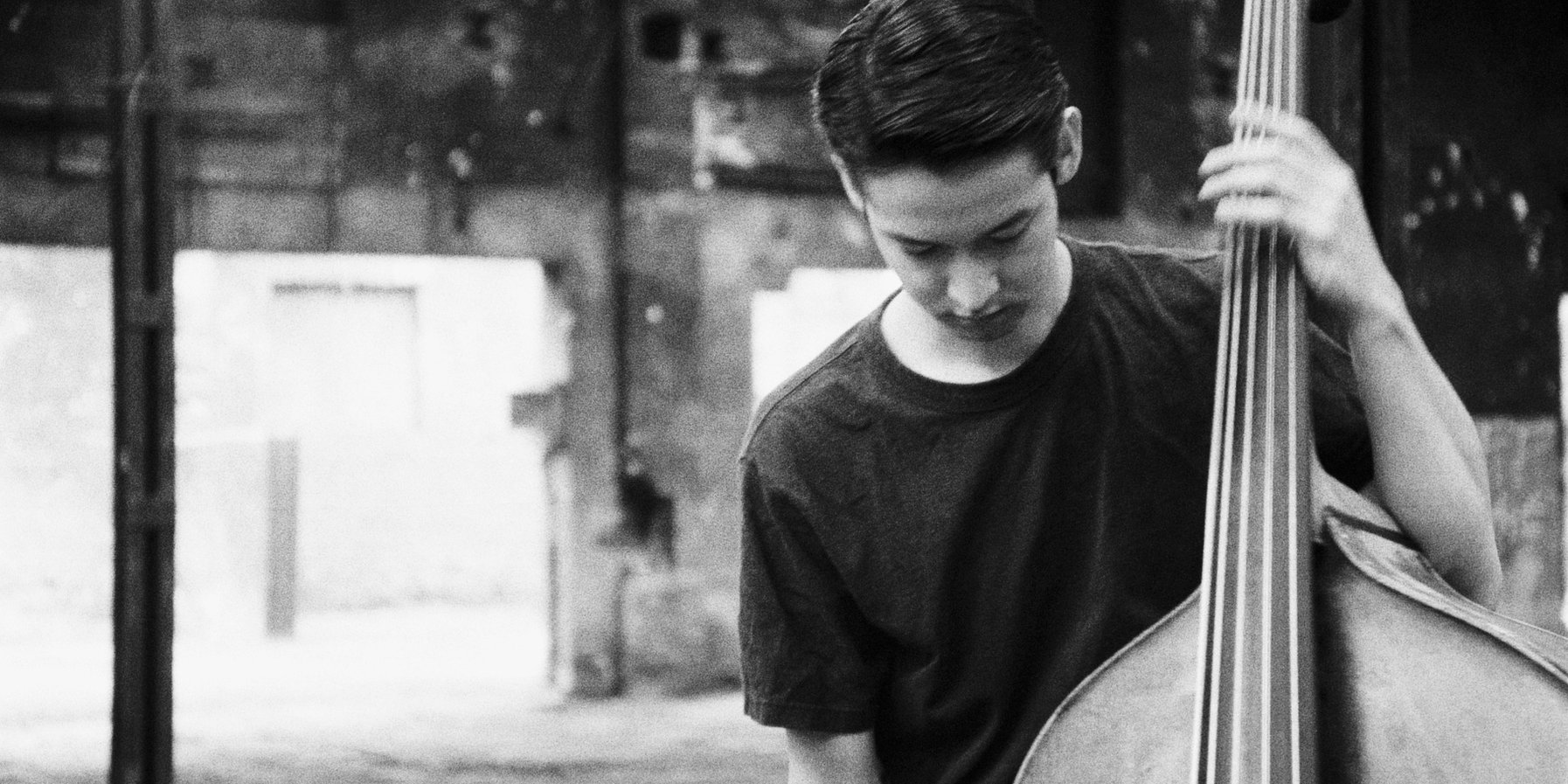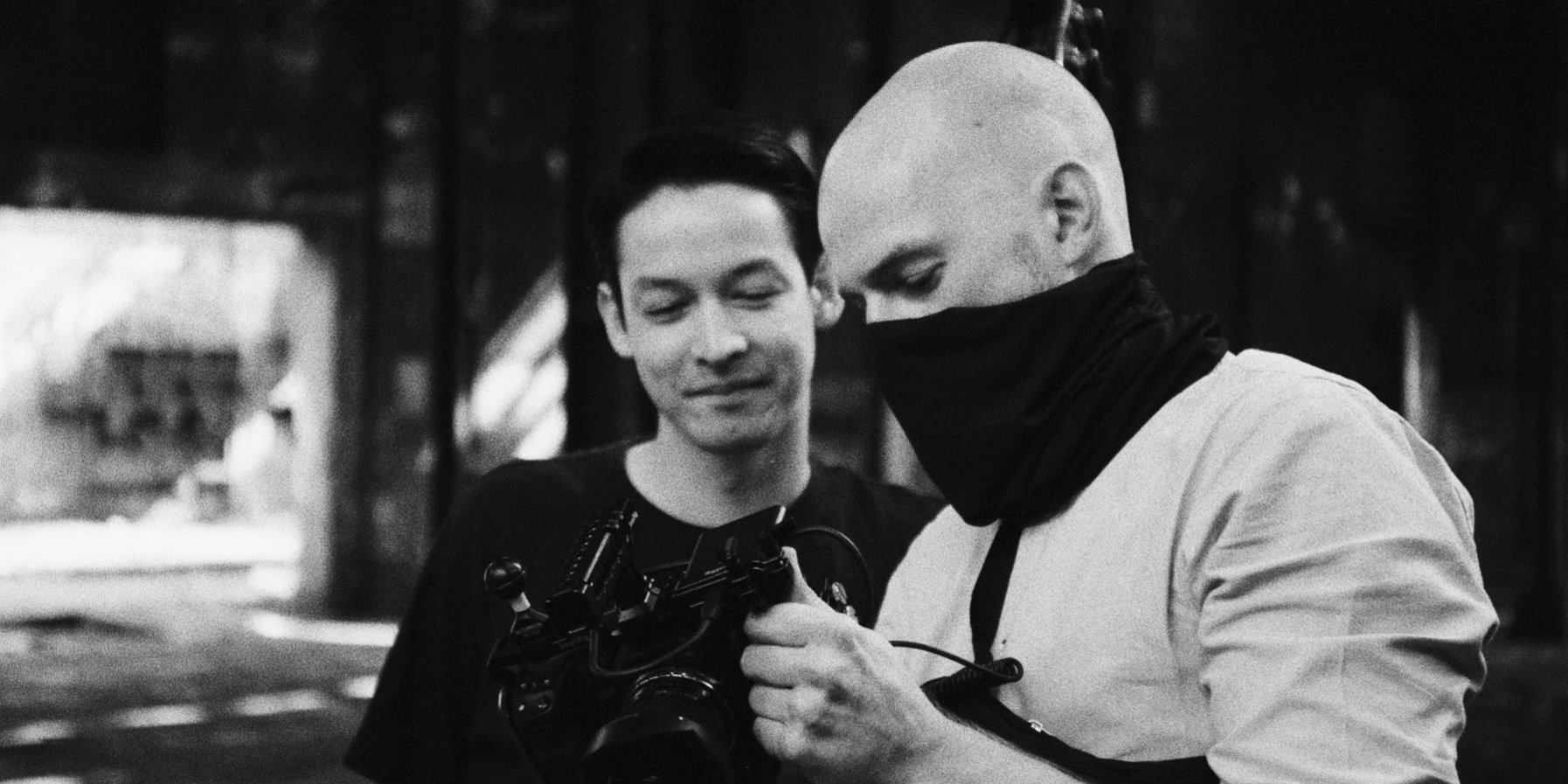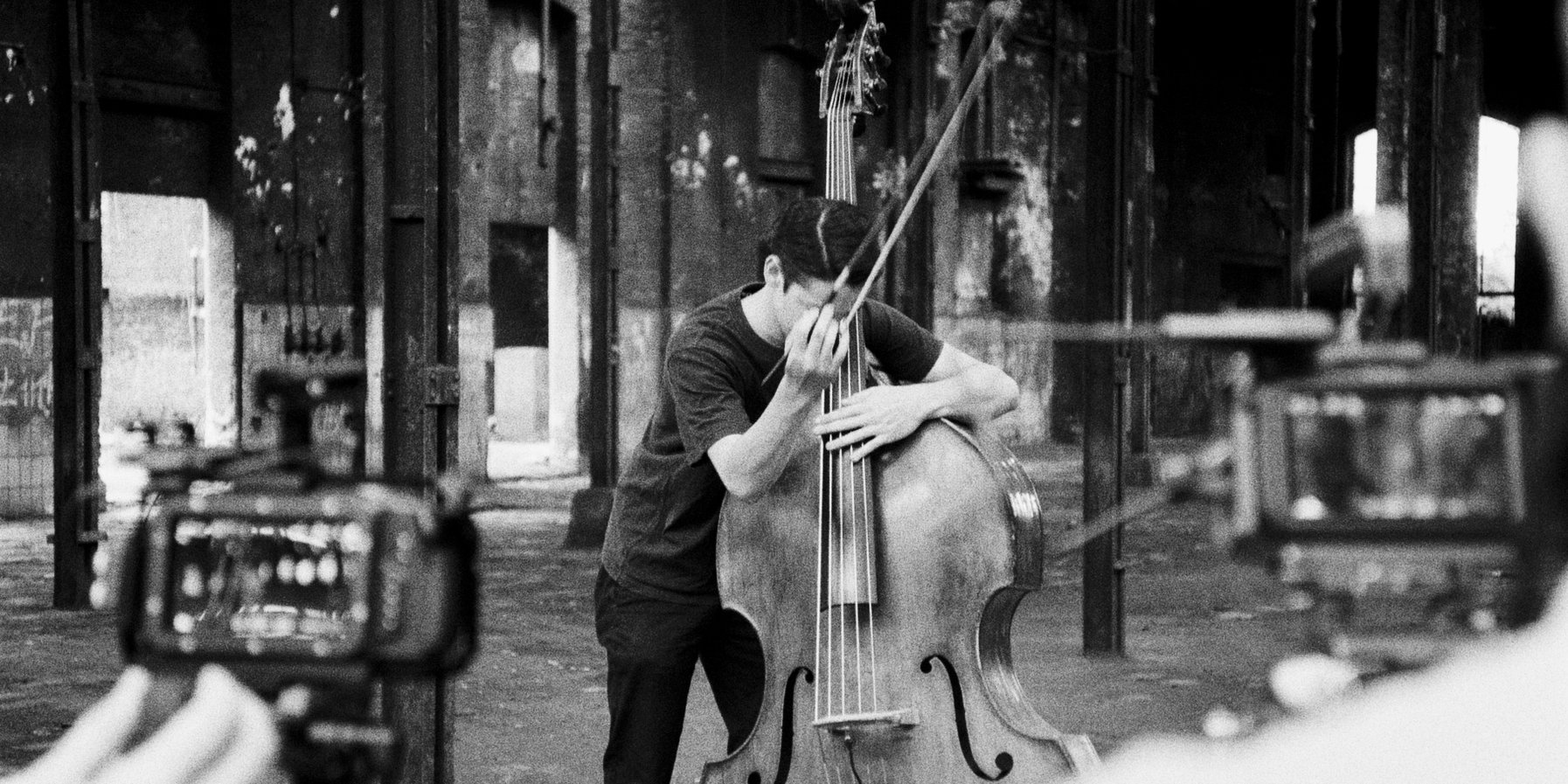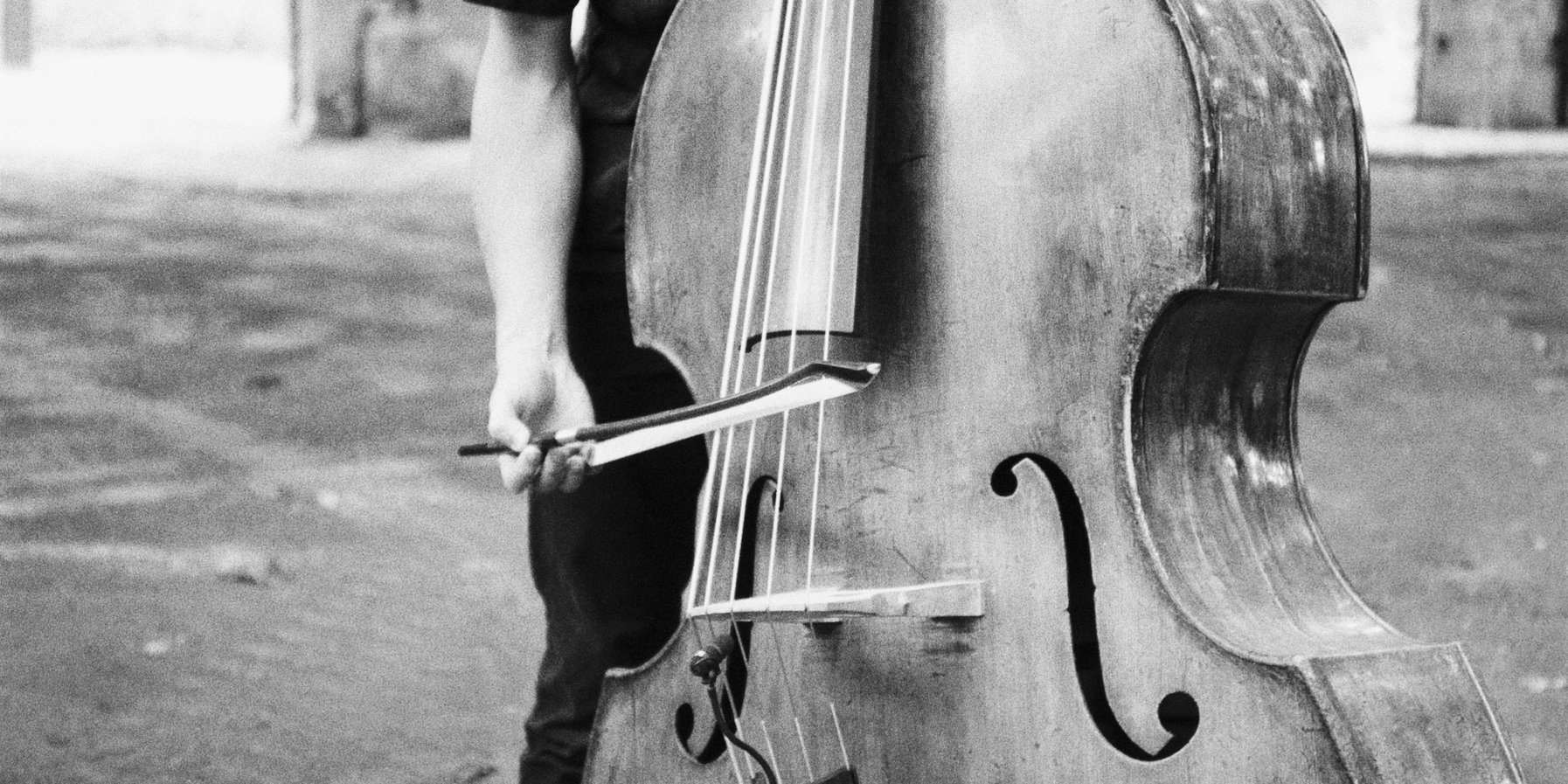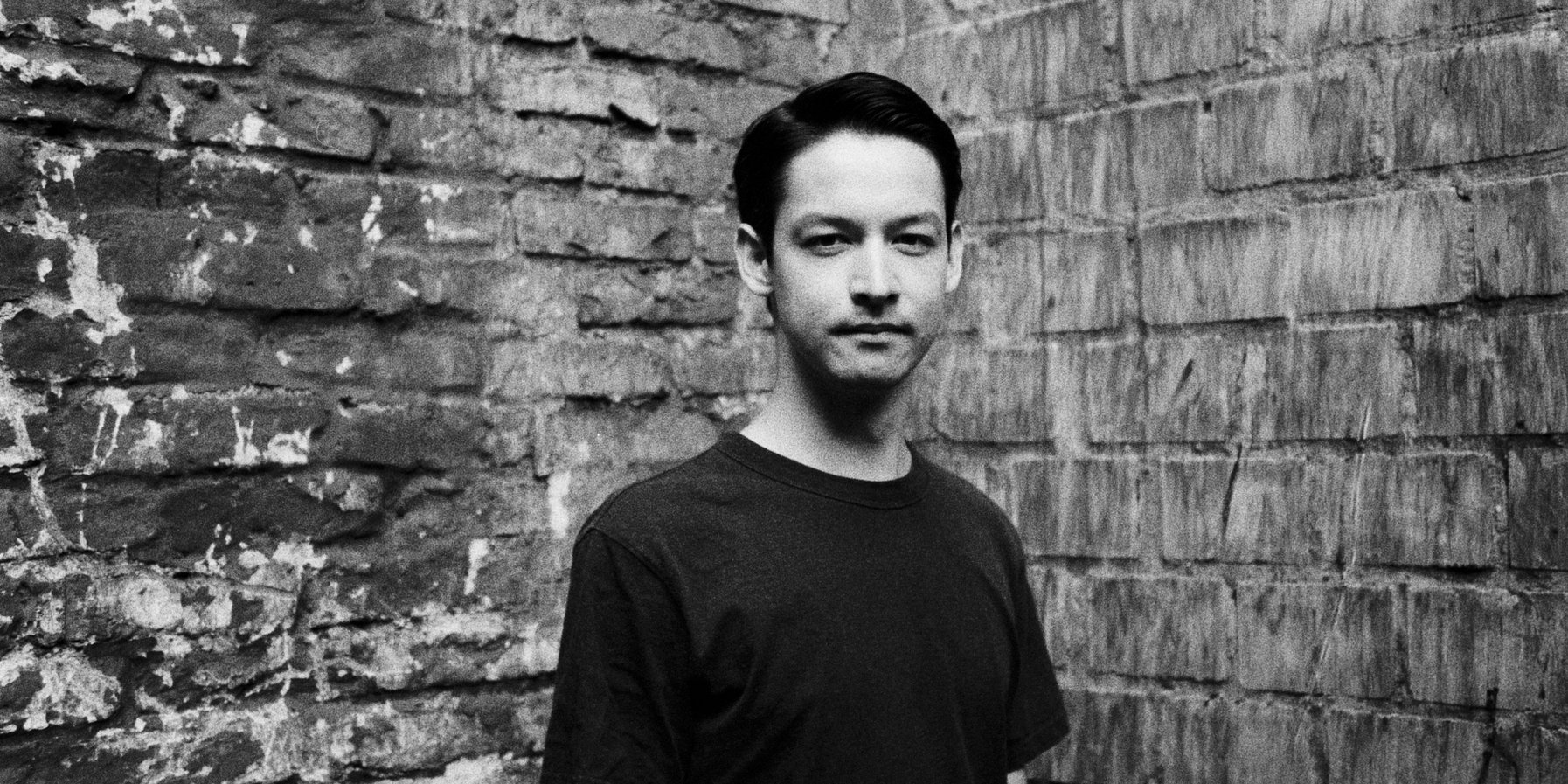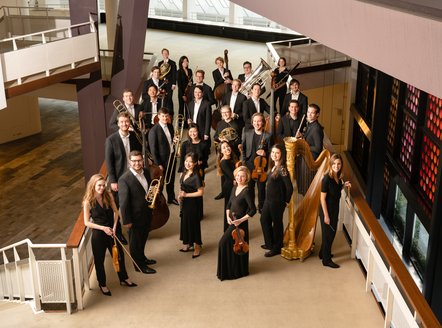A special work needs a special location: the young New Zealand bass player Alexander Arai-Swale has recorded the piece »Fury« by British composer Rebecca Saunders in a warehouse on the outskirts of Berlin.
»Fury« is an exceptionally complex work that places unusual demands on both the soloist and his instrument. It can only be played on a five-string double bass (regular double basses have four strings) on which the lowest string is tuned five semitones lower, so that it vibrates at a frequency of 23 hertz, placing it just outside the limit of human hearing.
The Performer
Alexander Arai-Swale was born in New Zealand in 1994 and had his first cello lessons at the age of six. After graduating with a B.A., he started to study the double bass at Melbourne's Australian National Academy of Music in 2016. He has won numerous competitions in his home country, making several appearances with orchestras such as the Tasmanian Symphony Orchestra. In 2018 Alexander Arai-Swale relocated to Berlin to continue his studies there.
In the 2018/19 season he was a member of the Deutsches Symphonie-Orchester Berlin, and since 2019 he has also held a scholarship from the Berlin Philharmonic Orchestra's Karajan Academy.
The Music :Rebecca Saunders: Fury for Solo Double Bass
Rebecca Saunders: The world in detail
»I don't need much input to write a piece of music: a single physical gesture, a special timbre, one sole word« - thus Rebecca Saunders describes her sources of inspiration. The London native is one of the most unusual figures on the European composers' scene. She has been living in Berlin since her early twenties, and in 2019 she became the first female composer and the second woman in any discipline to be awarded the prestigious Ernst von Siemens Music Prize.
The sound of a body
Rebecca Saunders often works with severe contrasts. »Hard edges produce a good relief, and there is enormous potential to be found in extreme opposites.« At the same time the composer focuses her attention on the question of how a sound is produced in the first place.
In »Fury« (2005), too, she looks at the physical aspects of music-making. Hardly any other instrument places such physical demands on the player as the double bass does: thanks to its corpulence and height, the instrument's potential can only be exploited under full physical exertion.
3 questions for Rebecca Saunders
Where did you get the idea of writing for double bass as a solo instrument?
This instrument possesses enormous emotional potential, and I had it in my composer's sights from the outset. A few years ago the Remix Ensemble from Porto asked a number of composers which instrument they would particularly like to write for at some point. My answer was clear: the double bass – a magnificent instrument full of exciting contrasts! The way the player interacts with the instrument is particularly fascinating – together, they are really a pair of dancers. The physical gestures that produce the sound are immensely inspiring to me.
My works are specifically written for a 5-string double bass: the low B string is tuned even lower to create a very unusual sound. And at the same time, the performer can play in an extremely tender and expressive style at the top of the first string. So the instrument is able to produce highly expressive low notes as well as wonderful, soulful high ones.

How would you describe the piece?
It doesn't really depict anger or fury. I wrote the music first, the title came afterwards. It can best be described as a series of outbursts, each of which then tries to disperse. The sounds emerge from the silence, then they vanish again. For me, this makes them similar to fury.
The opposite of anger is a degree of melancholy, and this, too, regularly appears in the music – at those moments when the double bass is played right at the top of the first string. So the title »Fury« is more of an attempt to give the audience an idea of what the work could really be about. We mustn't forget that every listener takes something different away with him.
Alexander Arai-Swale recorded »Fury« in a disused warehouse. Do you always think about where the work could be performed while you're composing?
When I'm composing I hear the sound in my mind, but the music only comes to life when it's played, when we hear it and respond to it. It would be pretty exciting to have the double bass standing on a big stage or in a church, with the musician playing alone before the audience. Who knows what resonances and echoes would result?!
I have written many works where several soloists or chamber musicians are spread around the room, forming a kind of collage. It's really exciting when the same piece is performed in a completely different acoustic situation: the music sounds different, and makes a different impression on the listener.
Text: Laura Etspüler, Stand: 22.9.2020
Sponsored by Classical Futures Europe and the European Union programme Creative Europe.
Live at the Elbphilharmonie
- Elbphilharmonie Kleiner Saal
Karajan-Akademie der Berliner Philharmoniker / Enno Poppe
Saunders / Djordjević / Poppe
Past Concert
